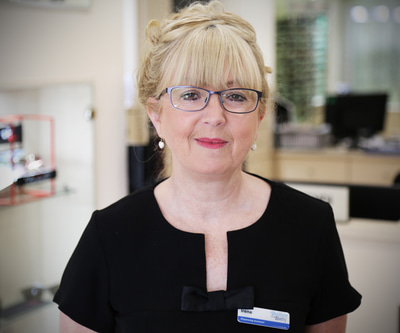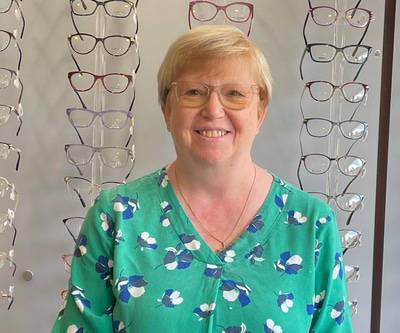- OT
- Life in practice
- Practitioner stories
- View from the other side
Practice team guide
View from the other side
Optical staff share their words of wisdom on the qualities they value in colleagues working in other roles
5 min read

Getty/simplehappyart
07 October 2022
Whether it is a colleague who remembers how everyone takes their tea or a team member who reliably helps new recruits, there are some staff who make the working day easier.
OT approached an optometrist and two optical assistants for their view on the qualities they value in colleagues.
An optical assistant on what she values in a practice manager
Name: Irene Melville
Role: Optical assistant
Practice: Bennett and Batty Opticians, Crompton Opticians (Hakim Group practices)

Irene Melville
Arguably the most crucial quality is communication. There needs to be interaction between the two at every opportunity; giving them plenty of options, helping them with dispenses and giving them all the information they need to use machinery within the practice.
Every morning, my practice manager Amelia will sit down and will run through the day ahead with the team, including the upcoming clinic and daily tasks, whether it’s figuring out what types of dispenses we can expect or just generally helping each other to tackle the day head on. There is a lot of communication between the two of us and I always feel that her support is there if ever we need to back each other up. We are a team and we trust each other to follow up on anything even if it’s outside of our work hours. I think it’s a really valuable way of going above and beyond. By forming that trust upon those key qualities, the result is a team that feels supported and confident and works much more efficiently.
An optical assistant on the qualities that make a good optometrist
Name: Gwen Eccles
Role: Optical assistant
Practice: Tyrrells and Embery Optometry (a Hakim group practice)

Organisational skills are also a priority. It takes hard work to keep a clinic running to time when you're in the test room and it’s vital to keep the whole practice running as it should.
Your optometrist needs to be able to identify the strengths and weaknesses of all practice staff. Regular training has helped our practice keep refreshed on topics and learn about new procedures and equipment as we offer a wide variety of services. This keeps our practice current and a place the patients feel safe and looked after. It also gives you confidence in answering patient questions that they're a bit wary of discussing in the test room.
Our optometrist also encourages us to give a valued input in the choice of frames that we think will go well in the practice and fit the practice profile. That is the bit I really enjoy doing most of all. I absolutely love when people are thrilled with new glasses because it makes them feel good that they look good.
An optometrist on the attributes she appreciates in a dispensing optician
Name: Josie Evans
Role: Optometrist
Practice: Linklater & Warren Opticians

Josie Evans
Time in the consulting room can be limited and dispensing opticians are the experts on different lens designs and frame choice. I really appreciate how our dispensing optician colleagues explore a patient’s lifestyle and working environment further outside of the consulting room, ensuring the patient has been recommended the best lens for their needs.
Likewise, if a patient is having difficulty with their glasses, a dispensing optician’s opinion is invaluable. I find it useful to have notes of their assessment before a recheck is considered, for example – are the measurements correct, have there been any changes in lens design compared to previous dispenses, what other solutions are available if the prescription is stable, etc.
Always learning
The AOP has worked in partnership with Johnson & Johnson Vision to create a series of recorded webinars for the practice team: www.aop.org.uk/webinars


Comments (0)
You must be logged in to join the discussion. Log in